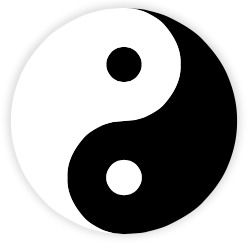Sleep
Sleeping in on the Weekend
New research explores the possible benefits of sleeping in on the weekend.
Posted June 30, 2018
Many students and hard-pressed working people sleep in on the weekend as a way of making up for lost sleep during the week. High school and college students often have early classes and work late into the evening, finishing homework. Others may engage in late night social activities. As a result, sleep during the week often falls below that which is recommended — about eight hours of sleep nightly. Likewise, many adults, particularly parents, have extremely pressured work and/or childcare schedules that result in reduced opportunity for sleep. One way that people try to cope with this is to use the weekend as an opportunity to sleep late and potentially make up for the sleep lost during the week. It is unclear however, if this is a successful strategy. It may not be possible to actually make up for lost sleep that accumulates over time.
There is ongoing research focused on people with objectively short sleep time. How, if at all, does getting less than the recommended amount of sleep affect health and well-being? Having a short sleep time is typically defined as routinely sleeping less than six hours per night. As currently defined, insomnia is persistent difficulty with falling asleep, staying asleep, having consolidated sleep, or sleep of good quality, that occurs despite having sufficient time and opportunity for sleep and results in daytime symptoms such as memory difficulties or low mood (American Academy of Sleep Medicine, 2014). People with insomnia do not necessarily objectively get less than six hours of sleep a night as measured by methods such as polysomnography. It has been established that patients with insomnia who do short total sleep time are at increased risk of developing cardiometabolic conditions such as high blood pressure and Type 2 Diabetes, as well as neurocognitive impairment such as poor memory and difficulty attending and concentrating (Macêdo, Neves, Poyares, & Gomes, 2015). It should be noted that there is a difference between people who are naturally short sleepers and people with insomnia who also objectively get less than six hours of sleep per night. In recognition of this the International Classification of Sleep Disorders, third edition, (American Academy of Sleep Medicine, 2014) recognizes short sleep as a possible “normal variant”. Short sleepers are individuals who average less than six hours of sleep per night and yet have no apparent daytime dysfunction as is needed for a diagnosis of insomnia. The short sleeper category does not include those who get insufficient sleep, not due to insomnia, but due to having busy work schedules or social obligations that result in them getting less than seven or eight hours of sleep on weeknights.
In an extremely interesting study by Akerstedt, et al, (2018), it appears that weekend sleep can help ameliorate the impact of insufficient sleep during the week. Studies have typically found that getting less than six hours or more than nine hours of sleep per night during the week increases risk of mortality. The authors cite evidence that compensatory weekend sleep may help prevent the obesity in children and hypertension in adults that has been associated with consistently short sleep time.
In this study 38,015 participants in Sweden were followed for 13 years or until the date of death or emigration of the individuals. Because of the duration of the study it was possible to investigate the impact of sleep on mortality among the participants. Data were collected at the beginning of the study with self-reported estimates of sleep during the work week and on weekends. For working people, days off were counted as weekends for the purposes of the study regardless of when during the week they occurred. Seven hours per night of sleep was used for the reference group that was characterized as having medium length sleep. Short sleep was defined as consistently sleeping less than five hours per night and long sleep as sleeping more than nine hours per night. They looked at groups that had short, medium, or long sleep on both weekdays and weekends; those that had short sleep during the week and long or medium sleep on weekends; those with medium weekday sleep and long weekend sleep; and those with long weekday and short or medium weekend sleep as well as those with medium weekday and short weekend sleep. Adjustments were made for various factors that could impact mortality such as gender, alcohol intake, and physical activity. The period during which the participants were followed was from 1997 to 2010. The authors chose to analyze the data for those under and those over 65 years of age as 65 is generally the retirement age in Sweden. It was assumed that after retirement weekday sleep would no longer be restricted by work requirements. With regard to demographics, people with short sleep tended to be older, have less education, and be more physically active. Those with long sleep duration tended not to use sleep medication, not to smoke, and to consume less coffee.
The researchers found that for people under 65 years of age sleeping five hours or less on the weekend was associated with a 52% higher mortality rate when compared to those who got seven hours of sleep. This relationship held only for those with short weekday sleep and not for those with medium or long weekday sleep and no such association was found for those who slept for nine or more hours on weekends. In this set of subjects there was a consistent negative effect of sleeping less than five hours, or more than eight hours, per night as compared to those who slept six to seven hours per night. Those who had short sleep during the week but long sleep on the weekends were not different from those who slept six to seven hours per day. They also noted that for people over 65 years of age no such relationships were found. They found that with increasing age, the difference between weekday and weekend sleep hours decreased and approached zero for those 65 and older. This resulted from decreased weekend sleep that more and more closely approximated the amount of sleep people got during the week as the age of participants approached 65. The statistical adjustments made for factors such as use of sleeping medication and coffee intake did not change the results. Participants with consistently short or long sleep died on average about eight months earlier than subjects who consistently slept six to seven hours per night. They concluded that when people sleep longer on the weekend this can help mitigate the impact of short sleep during the work week.
This is only one study and further work is needed to clarify the relationship between short sleep and compensatory sleep and to assess the impact of sleep duration over time. Nevertheless, it is an extremely hopeful finding as it indicates that it may be possible to use longer weekend sleep to compensate for and reduce the risk of increased illness and dysfunction resulting from short sleep during the week. It also indicates that not having an opportunity to make up for lost sleep over the weekend may confer a significant disadvantage to those who have consistently limited sleep time over the course of the entire week. So, if you can, do get in some extra weekend zzzs - it may indeed do a body good!
Akerstedt, T., Ghilotti, F., Grotta, A., Zhao, H., Adami, H., Trolle-Lagerros, Y., & Bellocco, R., (2018). Sleep duration and mortality – Does weekend sleep matter? Journal of Sleep Research. 2018;e12712. https://doi.org/10.1111/jsr.12712
American Academy of Sleep Medicine, (2014). International Classification of Sleep Disorders – Third Edition. Darien, IL: American Academy of Sleep Medicine.
Macêdo, P.J.O.M., Neves, G.S.M.L., Poyares, D.L.R., Gomes, M.M., (2015). Revista Brasileira de Neurologia, 51(3), p 62-68.



